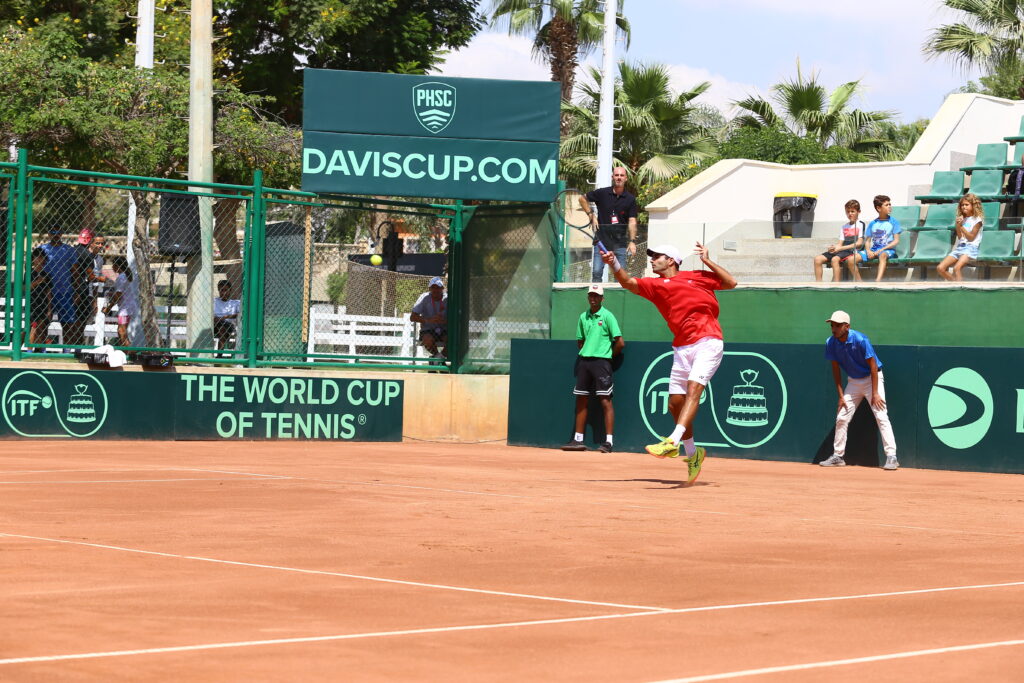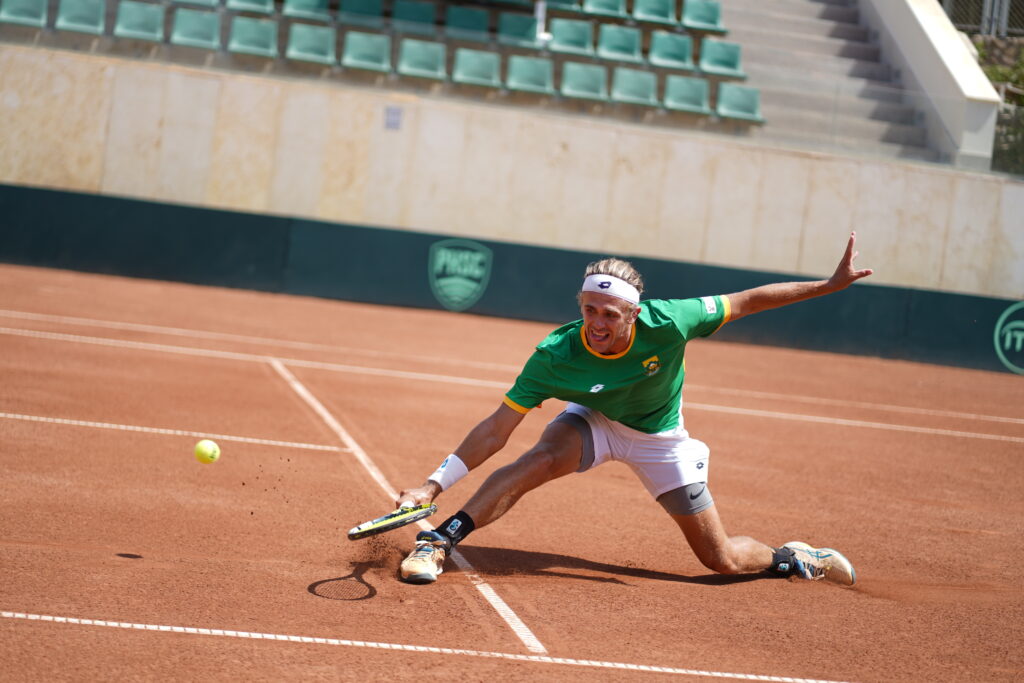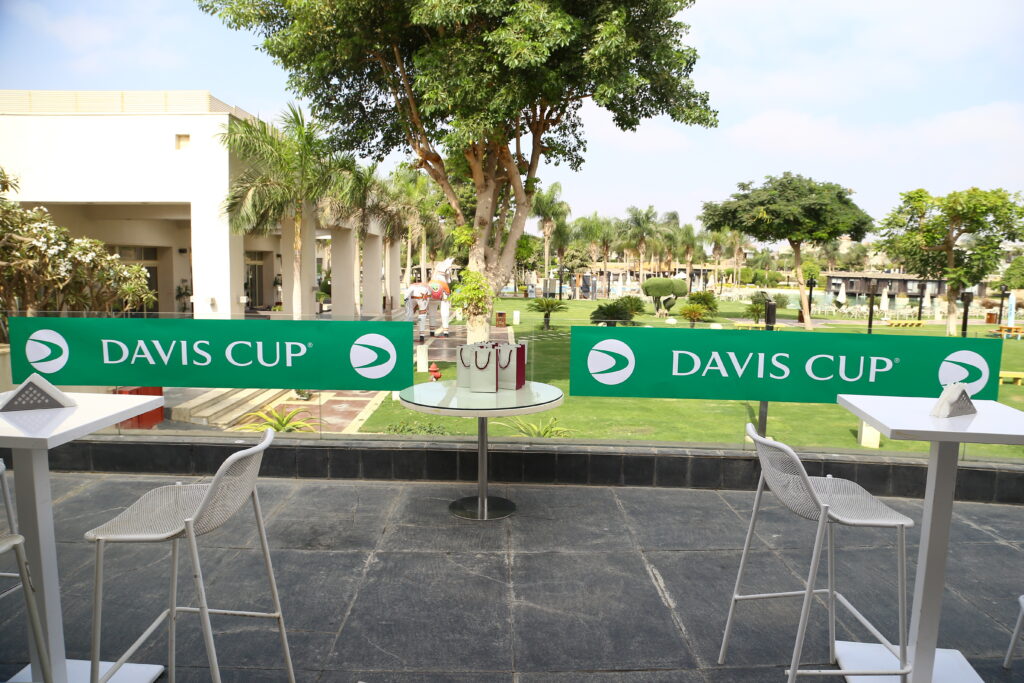Copyright ©2024 Victoriam Sports. All Rights Reserved
For the seventh consecutive year, we were appointed by the Lebanese Tennis Federation (LTF) to organize the Davis Cup tie, World Group II, between Lebanon and South Africa. This year’s event posed an additional challenge, as it could not be held in Lebanon due to the ongoing conflict between Israel and Hezbollah. The decision was made to relocate the tie to Cairo, Egypt, in order to ensure the safety of all players, officials, and spectators, while maintaining the standards of the prestigious Davis Cup.
The relocation added a layer of complexity to the event, as Cairo was a neutral venue that required us to navigate unfamiliar logistics and regulations within an exceptionally tight timeframe.
The primary objective was to deliver a world-class event that met the strict standards of the International Tennis Federation (ITF). The ITF guidelines for Davis Cup events are notoriously detailed and demanding, encompassing everything from on-court infrastructure to hospitality arrangements. Given that Lebanon was playing on neutral ground, the Lebanese Tennis Federation was particularly keen on projecting professionalism and ensuring that every detail of the event lived up to international expectations. The event also needed to provide a seamless experience for players, officials, and fans, while adhering to a defined budget and timeline.


The most significant challenge was the extremely short timeline. With only three weeks from the final decision to hold the event in Cairo, we had to move quickly to secure a venue, negotiate contracts, arrange accommodations, and manage all logistics. A key element of the challenge was ensuring that every aspect of the event met the high standards set by the ITF while also remaining within the budget specified by the LTF. We had to handle the complexity of planning remotely and organizing on-site logistics at a venue that was new to us, including working with local suppliers and navigating Egyptian customs regulations, which are known for being time-consuming and unpredictable. Additionally, organizing an event of this magnitude in a short period always involves anticipating potential risks and mitigating them swiftly, including delays in transportation, communication barriers, and unforeseen logistical hurdles.
Once the decision was made to relocate the tie to Cairo, we quickly mobilized our team for a four-day site visit. The purpose of this visit was to find a venue that complied with ITF’s rigorous standards, including court specifications, player facilities, and spectator accommodations. After careful evaluation, we selected a tennis club that offered the best balance of facilities, access, and compliance with ITF regulations. Simultaneously, we had to secure appropriate accommodations for both teams, officials, and VIPs. We selected a hotel with the necessary facilities for athletes, including recovery areas, fitness facilities, and dining options tailored to the dietary needs of the players. Local suppliers were engaged to handle the production of the banners, signs, and other branding materials that are essential to maintaining the Davis Cup’s image and standards. Given the limited time, we prioritized local vendors who had experience working on high-profile international events. Navigating customs to receive the ITF’s official banner pack in Cairo was another critical aspect of the operation. Egyptian customs are notoriously slow, and the official banners needed to be in place before the event. Through our network of local contacts, we were able to expedite this process, ensuring that the banners arrived and were cleared in time for installation. Once the logistics were in place, our team began production on the event's branding and promotional materials, coordinating between designers, printers, and on-site staff. A team was sent to Cairo ten days before the event to oversee the final setup. This included banner installation on and off the court, confirming transportation schedules, and finalizing details for airport pickups for the players, ITF officials, and other guests. During these final days, we maintained close communication with both the ITF and LTF, ensuring that every element was approved and executed to their satisfaction.


Despite the tight timeframe, the event was a resounding success. The ITF was highly complementary of the professionalism and precision with which the event was executed, particularly considering the logistical challenges of staging the tie in Cairo on neutral ground. The ITF noted that the tie was extremely well-organized and that our commitment to adhering to Davis Cup requirements, even under pressure, was commendable. The Lebanese Tennis Federation was also highly satisfied, especially given that Lebanon triumphed in the tie, further solidifying the event’s success. The win was celebrated not only for its sporting achievement but also for the seamless execution of an event under challenging circumstances.ITF Testimonials: “Your enthusiasm and commitment to staging a top-level event, as well as your diligence in checking everything was according to Davis Cup requirements, was much appreciated. It was an extremely successful and well-run tie, and this is even more commendable given that preparation time was shortened following the Davis Cup Committee’s decision that the tie could not take place in Lebanon. We appreciate the challenges that the organizing team faced when staging a tie on neutral ground, and the efforts of everyone involved must be applauded.” “Through detailed planning, teamwork, and effective collaboration with local contacts in Cairo, we not only met the expectations of the ITF and LTF but also delivered an event that highlighted the resilience and professionalism of the entire organizing team.”